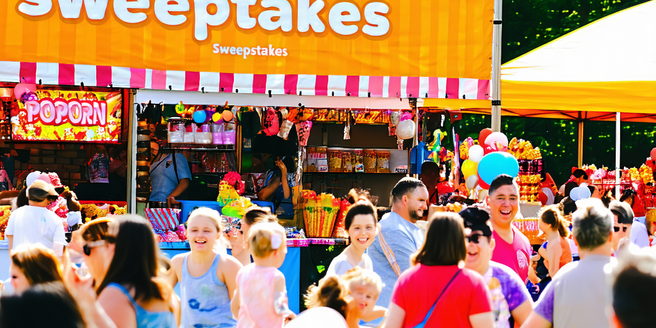
Understanding the Basics of Sweepstakes
Sweepstakes are promotional marketing tools used by businesses to engage consumers and create excitement around a product or service. Unlike lotteries, sweepstakes require no purchase for entry, making them an enticing option for attracting a wide audience. Participants enter these contests in hopes of winning prizes, which can range from small items to large, high-value rewards. Companies organize sweepstakes not only to increase brand awareness but also to collect consumer data. Understanding the mechanics and legalities of sweepstakes is crucial for businesses to effectively run these promotions without running afoul of regulations. Entrants benefit from the possibility of acquiring products or experiences without financial investment, creating a win-win situation. In the modern digital landscape, online sweepstakes have gained prominence, offering easy entry methods via social media platforms and websites.
The Economic Impact of Sweepstakes
Sweepstakes significantly influence the economy by boosting consumer spending and generating marketing opportunities for businesses. They encourage participant purchases by creating a sense of urgency and competition among consumers. This leads to increased sales and brand loyalty, making sweepstakes an effective strategy for revenue generation. Additionally, the influx of data collected from entrants allows companies to tailor their marketing efforts, refine target audiences, and enhance product offerings. The economic landscape is positively impacted as businesses experience growth and market expansion. With minimal financial risk involved, entrants are more likely to engage with a brand, further supporting economic activity. Sweepstakes also provide employment opportunities in marketing, advertising, and regulatory compliance, contributing to job creation. The interplay between consumer excitement and business gain highlights the substantial economic significance of sweepstakes.
Consumer Behavior and Sweepstakes
Consumer behavior in sweepstakes is driven by the allure of winning without financial commitment. People are naturally inclined towards opportunities that promise high rewards with minimal effort, making sweepstakes particularly attractive. The psychology behind this behavior is rooted in the ‘risk-reward’ scenario, where the potential gain outweighs the perceived effort or risk, as there is often nothing monetary at stake. This behavior is further fueled by social proof, where seeing others participate encourages more entries. Sweepstakes leverage this by creating a sense of community and excitement. Brand engagement increases as consumers feel a connection to the company offering the sweepstakes. The involvement in such promotions often leads to higher brand recall and loyalty. Additionally, the instantaneous nature of online sweepstakes plays into consumer desires for quick gratification, thus shaping future marketing strategies.
Regulatory Challenges in the Sweepstakes Industry
The sweepstakes industry faces several regulatory challenges that companies must navigate to ensure compliance and avoid legal repercussions. Each country has its own laws governing sweepstakes, which can vary significantly, necessitating careful consideration of legal frameworks during planning. Common regulations include prohibitions on requiring purchases for entry, truthfulness in advertising, and transparency in winner selection processes. Companies must also adhere to data protection laws, especially when collecting personal information from participants. Failing to comply with these regulations can result in legal penalties and damage to brand reputation. As the digital landscape evolves, incorporating social media and online platforms, maintaining regulatory compliance becomes increasingly complex. Sweepstakes organizers must stay informed of regulatory changes and work with legal professionals to design promotions that align with all applicable laws and guidelines.
Future Trends in Sweepstakes Market Research
Future trends in sweepstakes market research reveal a shift towards more personalized and digitally integrated experiences. As technology advances, companies are using data analytics to enhance the sweepstakes experience, tailoring promotions to individual consumer preferences and behaviors. Virtual reality and augmented reality could play a significant role in creating immersive and engaging sweepstakes that capture consumer interest. Additionally, integrating blockchain technology might ensure transparency and fairness in winner selection while safeguarding consumer data. The growing focus on sustainability could also influence sweepstakes, with more brands offering eco-friendly or socially responsible prizes. As consumer preferences evolve, especially among younger demographics valuing experiences over material goods, businesses may craft sweepstakes that offer unique experiences or charitable contributions. Staying attuned to these trends allows companies to create effective, compelling sweepstakes that resonate with modern consumers.
